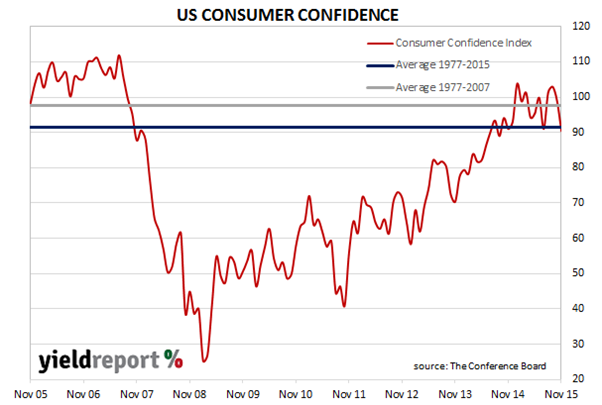US consumers became less optimistic in the October/November period, predominantly on the back of concerns about the availability of additional work coupled with the view that incomes would fall. The US Conference Board November survey of consumer confidence showed a drop in its confidence index down to 90.4 after October’s drop to 99.1. The result comes as a quite a surprise as financial markets were estimating it would come in at 99.5 and US employment figures had been unexpectedly strong through October.
Consumer confidence typically increases when the economy expands and decreases when the economy contracts. It is seen as an important indicator of an economy’s short term health and in Western countries an estimated 60-70% of economic activity, or GDP, is in the form of private sector consumption.
The Consumer Confidence Index figures have been quite volatile in recent months, typically moving between 90 and 100. Since July 2014 the index has been at the long term average or above (see chart below) and one interpretation is US consumers can be seen as being optimistic in their outlook or neutral at worst. However, the long term average has been dragged down by the US “Great Recession” period and any reading below 97.5 is below the pre-2008 average.


